Links’ three-barrelled name hints at its thematic confusion
With Link winding up this week, it seems like a good time to take a tour through the show. What it did well, what it didn’t and, most of all, all the ways in which it was confused about its themes and tones.
At its core, Link: Eat, Love, Kill was a show about guilt and the warping effect that guilt can have on our behaviour. But not just our behaviour, our behaviour especially within our community.
It’s the communal nature of people’s decisions that most characterises Link. People in a community – but especially a small community – base their decisions on how they will be perceived by the people around them. So mistakes that people make in Link, whether big or small, are magnified by the need to hide those mistakes from their neighbours and the consequent guilt that builds from that decision.
Nearly every character in Link is plagued by guilt due to their actions. But more importantly they’re plagued by guilt due to their considered and deliberate inaction after that mistake. It is this guilt that drives much of the surreal behaviour seen in Link’s first half. From the neighbour who turned his back on a young child needing help, to the cop that helped framed an innocent man, to the mother-in-law who stood by and let her son abuse his wife, to the mother who was so busy working that she didn’t realise her own daughter was missing. And, ultimately, to the child who was too busy playing to notice his sister was hurt and then missing.
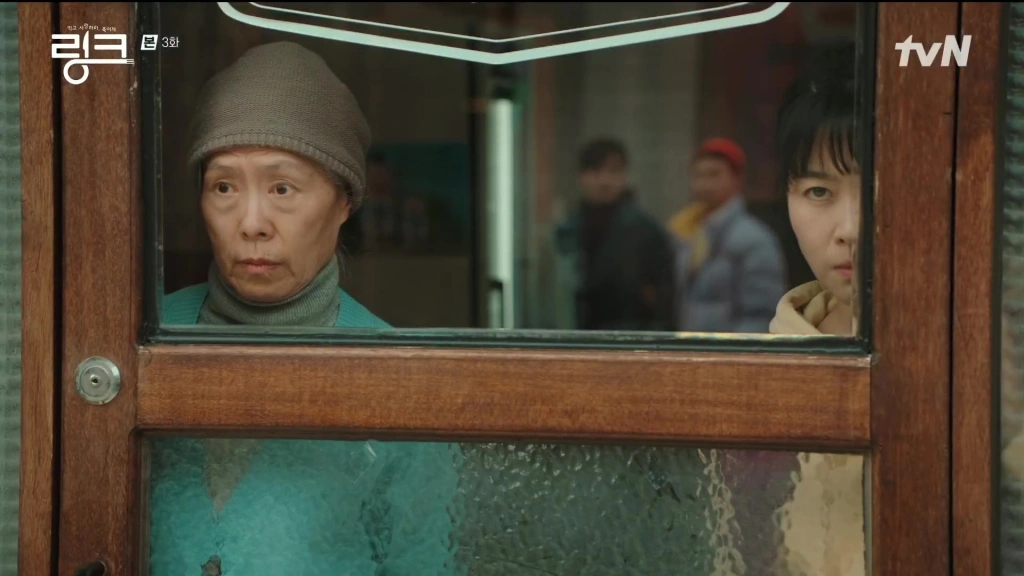
People are weird in Link but only because they’re hiding a piece of gravel at their core, one that rubs softly but insistently at their life. And the only way they can embrace life and become a whole person is if and when they finally excise that small aggravating piece of guilt and be forgiven. So forgiveness is a gentle and heartwarming theme of the show as well.
Unfortunately, as a show about guilt, Link is an inherently sad one. Every character, but especially the male lead, is deeply, fundamentally sad. This sadness pervades the show and is embodied in lead actor Yeo Jin-goo’s performance. He is a sad man in a sad show about gnawing sadness.
Except, of course, he’s not. Because Link begins its run with a light romcom feel and a kind of Twin Peaks-esque surrealist overlay. The mysterious supernatural link itself – an invisible emotional red thread of fate linking our two protagonists – is played for light laughs as Yeo Jin-goo blubbers and giggles while going about his day and tries to work out whose emotions it is he’s feeling.
Love blooms in a strange pocket universe in Seoul’s outer suburbs. A looming underpass separates the small, insular and dysfunctional community from the outside world and two warring restaurants face off against each other, both literally and figuratively: one high-quality and modern, the other traditional and poor.
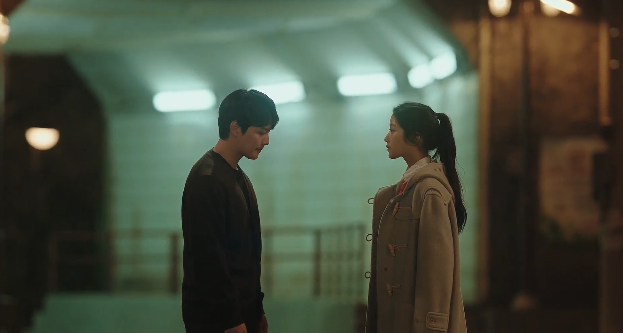
Determined to finally solve the mystery of his sister’s disappearance 18 years before, Yeo Jin-goo’s character, Eun Gye-hoon, moves back to his old neighbourhood. A gourmet chef, he begins the process of opening a modern, Western restaurant. He soon encounters Noh Da-hyun (Moon Ga-young), a failed corporate employee who’s come home to her family’s cheap Korean stew restaurant to hide from her stalker, Lee Jin-geun (Shin Jae-hwi). With Gye-hoon “linked” to Da-hyun and able to feel her emotions, he’s soon making himself emotionally available to her while investigating the possibility she may be his long-lost sister.
When Da-hyun and her protective mother and grandmother accidentally kill Lee Jin-geun (or so they think), they stash the body in the neighbouring restaurant’s fridge on the footpath, unaware it has been put there by mistake.
The dead body in the fridge, the almost slapstick antics of trying to recover it, the hints at other violence lurking beneath the generic blandness of this suburban community: all of this hints at a kind of Pushing Daisies comedic morbidness. One where death lurks but life dances lightly on top of it.
But with an underpinning plotline about not one but two stalkers and serial killers, it’s also a standard thriller with an ultimate villain who’s as one-note as he is inexplicable. And as the show unfolds, it becomes almost generic in its characters, serial killer plotline and lightweight romance.
For a show that’s surreal, it’s too straightforward. For a show that’s a romcom, it’s too sad. And for a show that’s life-affirming melodrama, it’s too violent.
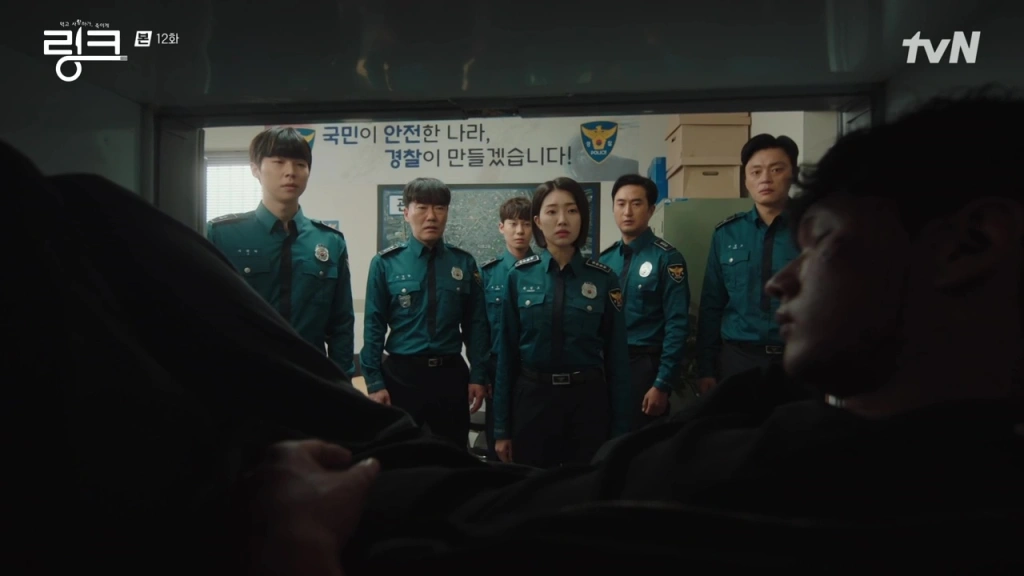
The emotional link between the two leads becomes eventually a link for Gye-hoon, the male lead, to save the female lead. And while the parallels are obvious here – he was able to save her using the link when he wasn’t able to save his sister despite it – it ultimately ends up reinforcing classic misogynistic tropes. Women need men who are romantically interested in them to save them physically from violence.
The link between the two characters, introduced in the beginning as a burst of emotions for a man who had shut himself off from the world, in the end becomes a way for a heroic male lead to appear just in time to save the passive and endangered female lead. Something the show repeated over and over until any emotional resonance of a potential metaphor for empathy was completely lost.
I ended up imagining a version of the show with no serial killer plotline at all and I think this would made for a superior show.
The romance itself is lovely and understated, based as it is in the every day intimacy of eating, conversation and comfort. The ‘Eat’ part of the title at least was well served, with food as life and family contrasting nicely with death. And the ‘Love’ part was nice if a little understated and muted in parts. But the ‘Kill’ part of the show – originally nicely surreal in the stashing of a body in a fridge usually reserved for food – became violent and pervasive and even weak in its use of voyeuristic imagery of violence against women and girl-children.
The original tantalising theme – that people kill to protect those they love – floated the idea that eating, loving and killing defines family, whether born or found. People ate with family, loved family, and were willing to kill for family. And that underlying menace of suburban violence was inherently bound up with people trying to protect those they were linked to, those that they loved, those that were not just community but family.
The show originally grounded this theme in female violence that could almost be seen as justifiable. It was women roaming the streets with baseball bats and stashing bodies in fridges. It was women killing to protect their families and friends. And it is this theme, more than any other, that was lost as the show unfolded as a generic thriller of scared girls and women being stalked by men and hoping that men would save them.
In the final estimation, Link: Eat, Love, Kill became a tale of three unmeshed shows. Neither romcom, nor thriller, nor melo discussion of guilt. And not a coherent melange of all three. Instead a disconnected and sad show about sad people with detours into menace and gendered violence.
So while Link worked as a mid-week show for casual viewing, it was never the surreal and delightful masterpiece it could have been from its strong opening week.

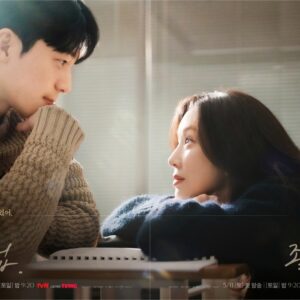


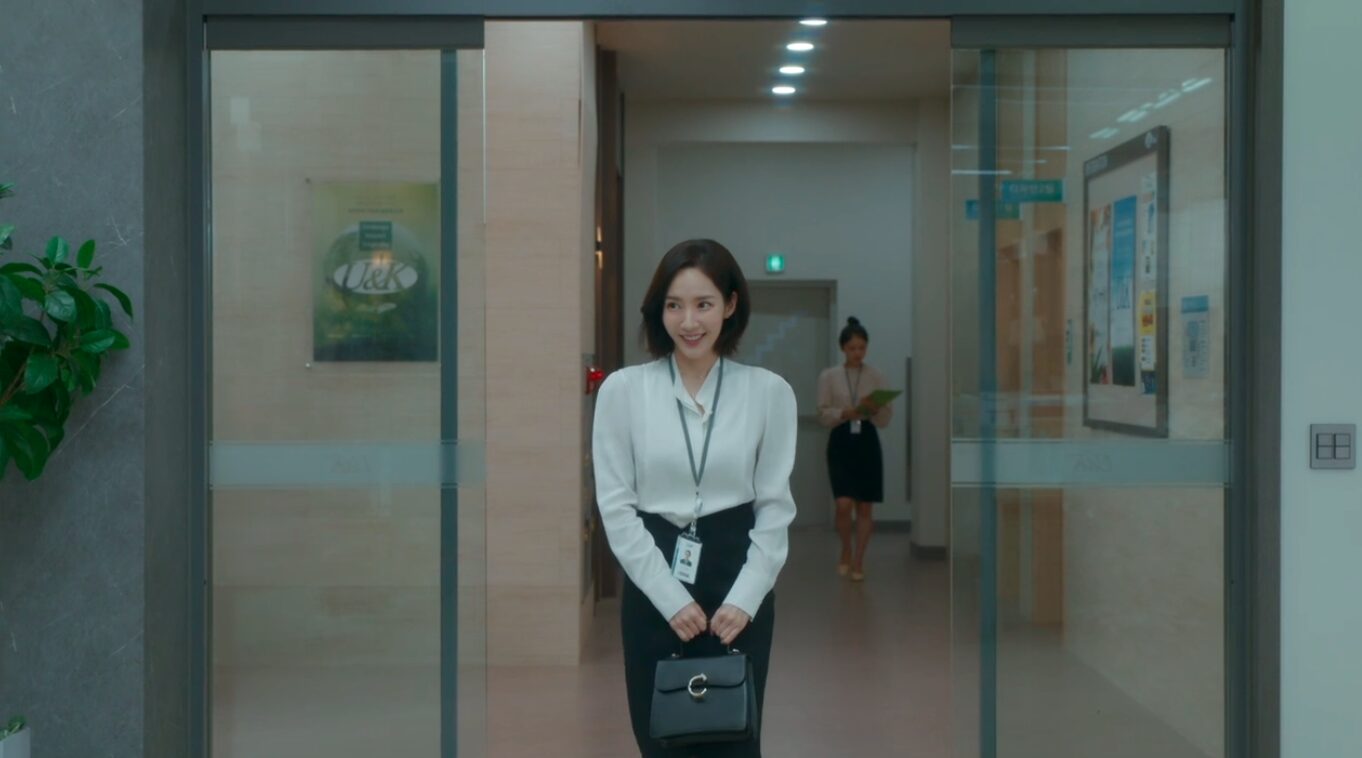
Oh I finally found Link review. Otherwise I just heard of some opinions on Tumblr. Thank you for this.
The part I didn’t get most was …what was killer’s motive? Also like how this town’s police is so stupid.
Why would I girl roam freely at night ..although she has every right..when her stalker is at loose. You would actually worry about your life first.
But most I got out of this show was Yeo Jin Goo – this is first drama of his that I watched & I loved him
Thanks for dropping me and leaving a comment. And, yes! The serial killer had no motive nor any motivation. His inclusion was head scratching.
I’m so glad you discovered Jingoo, he’s a fine young actor and his other works are well worth checking out.